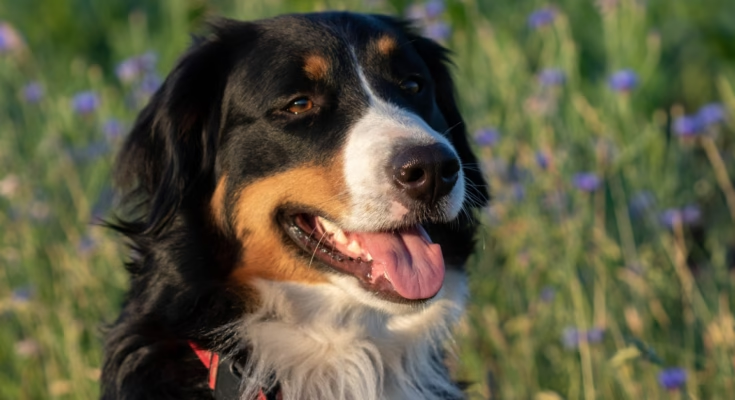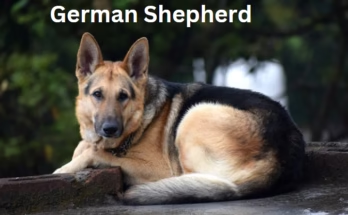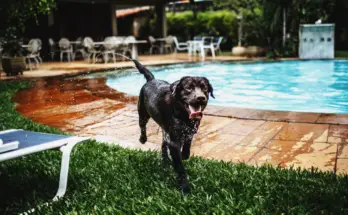Introduction
If you’re searching for a loyal, affectionate, and playful companion, the Mini Bernese Mountain Dog might steal your heart. This adorable breed is a downsized version of the standard Bernese Mountain Dog, boasting the same lovable personality and stunning tri-coloured coat of black, white, and rust. Their smaller size makes them a perfect fit for families, singles, or anyone living in apartments or smaller homes.
Mini Bernese Mountain Dogs are usually bred by crossing a purebred Bernese Mountain Dog with a smaller breed like the Cavalier King Charles Spaniel or Miniature Poodle. This careful breeding retains the Bernese’s signature charm while creating a more manageable size. Despite being a relatively new breed, they’re quickly gaining popularity for their friendly nature, striking appearance, and adaptability.
In this guide, we’ll dive into everything you need to know about Mini Bernese Mountain Dogs—from their history and temperament to essential tips on training and care. Whether you’re considering adding one to your family or simply curious about this breed, this guide has you covered!
History of the Mini Bernese Mountain Dog
The Bernese Mountain Dog has its roots in Switzerland, where it was initially bred as a hardworking farm dog. These loyal and versatile dogs were trusted to pull carts, herd cattle, and provide companionship to their owners. Over time, their intelligence and affectionate nature helped them gain popularity worldwide, and the breed was officially recognized by the American Kennel Club in 1937.
The Mini Bernese Mountain Dog, on the other hand, is a more recent addition to the canine world. Carefully bred to be a smaller, more adaptable version of the standard Bernese, this breed is perfect for those with limited living space, like apartments or smaller homes. By selecting and crossing breeds thoughtfully, breeders have successfully created a dog that maintains the Bernese’s charm and work ethic but in a more compact size.
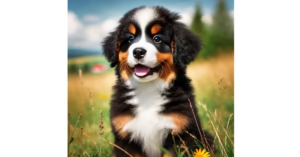
Breed Overview
- Height: 12–15 inches
- Weight: 10–25 lbs
- Lifespan: 10–15 years
- Colours: Tri-colored
- Suitable for: Families with children and other pets
- Temperament: Independent, loyal, friendly, eager to please, brilliant
The Mini Bernese Mountain Dog is a charming and compact version of the classic Bernese Mountain Dog, but it is not officially recognized as a separate breed. Developed in the early 2000s, this smaller version came about when breeders crossed the Bernese with the Cavalier King Charles Spaniel to create a dog with the same lovable traits in a more manageable size.
Although they have shorter legs and a smaller build than the full-sized Bernese, they retain the iconic double coat and expressive facial features. Like their larger counterparts, Mini Bernese Mountain Dogs are loyal, eager to please, and highly independent, making them excellent companions for families with kids and other pets. Their friendly temperament and adaptability make them a favourite choice for many dog lovers.
Physical Traits and Personality of the Mini Bernese Mountain Dog
Mini Bernese Mountain Dogs share the striking appearance of the standard Bernese Mountain Dog but in a smaller, more compact size. They typically weigh between 25 and 50 pounds and stand 12 to 20 inches tall at the shoulder. Their iconic tri-colour coat—black, white, and rust—is long and thick and requires regular grooming to stay healthy and shiny.
These dogs have a strong, muscular build with broad heads and warm, friendly expressions. Their dark almond-shaped eyes and black nose add to their endearing appearance, while their triangular, close-hanging ears complete their charm. Without a doubt, their eye-catching looks and confident presence make them a showstopper wherever they go.
Known for their loving and affectionate personalities, Mini Bernese Mountain Dogs are loyal and devoted to their families. They thrive as companion dogs and are intelligent, eager to please, and relatively easy to train. These dogs are great with children and other pets, making them an ideal choice for families. However, they can be vocal and may frequently bark if not trained to manage this behaviour early on.
In addition to their charming temperament, Mini Bernese Mountain Dogs have a lifespan of about 12 to 15 years, although this can vary depending on factors like genetics, diet, and overall health. Their smaller size and adaptable personality make them a popular choice for dog lovers seeking all the qualities of a Bernese in a more manageable package.
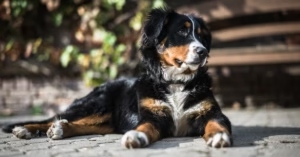
Key Traits of the Mini Bernese Mountain Dog
- Energy: High
- Trainability: Easy
- Health: Good
- Lifespan: 12–15 years
- Sociability: Excellent
The Mini Bernese Mountain Dog is known for its high energy levels. It is always ready for playtime, walks, and adventures with its family. Their enthusiasm and playful nature make them great companions for active households.
This breed excels at trainability. They are intelligent, eager to please, and typically respond well to positive reinforcement techniques, making training sessions both enjoyable and effective.
In terms of health, Mini Bernese Mountain Dogs are generally a healthy breed, though, like all dogs, they can be prone to certain health conditions. Regular check-ups, a balanced diet, and plenty of exercise can help maintain their overall well-being.
With a lifespan of 12 to 15 years, these dogs can be your loyal companion for many years and bring joy to your family throughout their lives.
Mini Bernese Mountain Dogs are highly sociable, getting along well with children, other pets, and strangers. Their friendly and affectionate nature makes them a wonderful addition to any household.
Training Your Mini Bernese Mountain Dog
Training a Mini Bernese Mountain Dog is typically straightforward due to their intelligence and eagerness to please. Positive reinforc+++++ement methods work wonders with this breed, as they respond well to praise, rewards, and encouragement. However, consistency and patience are key, as they can be a bit stubborn at times. Basic obedience training and early socialization are crucial to ensure they become well-behaved and balanced family members.
It is essential to start training early, ideally while puppies are still puppies. Puppy socialization classes offer a great opportunity to expose your dog to new people, pets, and experiences in a controlled setting, preventing future behaviour issues and helping it grow more confident.
When training your Mini Bernese Mountain Dog, it’s important to keep sessions short, engaging, and fun. These dogs tend to have short attention spans, so variety and excitement in training are necessary. Treats, as rewards for good behaviour, keep your dog motivated and engaged throughout the process.
Your dog should master basic commands such as sit, stay, come, and down first. Once these are learned, you can introduce more advanced training, including dog sports or advanced obedience. Always remember that positive reinforcement is key to success. Harsh methods or negative reinforcement can cause anxiety, leading to behaviour problems. Being patient, consistent, and kind will help foster a strong bond with your dog.
With the right training, Mini Bernese Mountain Dogs can become loyal, well-behaved companions for years. To keep track of your pup’s training progress and daily activities, consider using a Fi Smart Dog Collar to monitor their location and ensure they get enough exercise.
Exercise and Activity Requirements
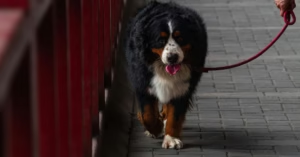
Although Mini Bernese Mountain Dogs are smaller than their standard counterparts, they still possess high energy levels and require daily exercise to remain healthy and content. These dogs are not ideal for apartment living and thrive best in a home with a fenced yard where they can run and play freely.
A daily walk or run lasting at least 30 minutes is essential for a Mini Bernese Mountain Dog. They also love engaging in activities like hiking, swimming, and playing fetch. Additionally, providing mental stimulation through puzzle toys or interactive games is just as important for keeping them happy and engaged.
These dogs can be prone to gaining weight, so it’s crucial to monitor their diet and exercise routine to prevent obesity. Regular physical activity not only helps keep them fit but also channels their energy to channel their energy and prevent destructive behaviour.
It’s also important to remember that Mini Bernese Mountain Dogs, due to their thick double coat, can be sensitive to extreme temperatures. In hot weather, be sure to offer plenty of shade and fresh water and limit outdoor activities during the hottest part of the day. During colder months, a warm coat or sweater may be needed to ensure they stay comfortable.
In summary, Mini Bernese Mountain Dogs are active, energetic dogs that require daily exercise and mental stimulation to stay happy and healthy. A home with a fenced yard and an active family environment is ideal for helping these dogs thrive.
Personality and Intelligence of the Mini Bernese Mountain Dog
Although the Mini Bernese Mountain Dog closely resembles its larger counterpart in both appearance and personality, there can be some variations. Differences in size, temperament, and potential health concerns may arise due to inherited traits from both the Bernese Mountain Dog and the Cavalier King Charles Spaniel. These variations are natural and add to each dog’s uniqueness, making them even more special as companions.
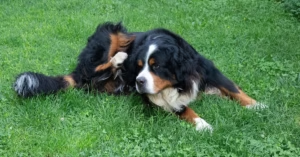
Are Mini Bernese Mountain Dogs Good for Families?
Luckily, both the Bernese Mountain Dog and the Cavalier King Charles Spaniel are known for their outstanding personalities, making their mix an excellent choice for families. These breeds are intelligent and affectionate, and they enjoy socializing, making them fantastic companions for households.
The Bernese Mountain Dog was bred for calmness and laid-back behaviour, particularly around cattle, giving them excellent impulse control. On the other hand, the Cavalier King Charles Spaniel is more energetic and excitable. As a result, the temperament of a Mini Bernese Mountain Dog can range from high-energy, like the Cavalier, to calm and relaxed, similar to the Berner.
Both breeds are eager to please, sociable, and affectionate, making them ideal family pets. They love spending time with their people, making them perfect for homes with children or families that enjoy hosting gatherings.
Mini Bernese Mountain Dogs are also easy to train, especially when using positive reinforcement techniques like treat training. This ensures a well-behaved companion for years to come.
Health Considerations for the Mini Bernese Mountain Dog
Like all dog breeds, Mini Bernese Mountain Dogs are susceptible to certain health issues. Common concerns include hip and elbow dysplasia, eye conditions like cataracts and progressive retinal atrophy, and some cancers such as mast cell tumours and lymphoma.
To ensure the best start for your dog, it’s essential to work with a reputable breeder who screens for these health problems. Additionally, regular veterinary check-ups are necessary to catch any potential issues early and maintain the health of your Mini Bernese Mountain Dog throughout their life.
Grooming Your Mini Bernese Mountain Dog

The Mini Bernese Mountain Dog has a thick, double coat that requires consistent grooming to keep it healthy and looking great. Their coat sheds moderately throughout the year, with heavier shedding during seasonal changes, so weekly brushing is essential to prevent matting and tangling.
Baths should only be given when necessary—typically when they are particularly dirty or smelly—since over-bathing can strip their coat of natural oils. When you do bathe them, be sure to use a dog-specific shampoo and conditioner to maintain their coat’s health and shine.
Other grooming needs include regular nail trimming, teeth brushing, and ear cleaning. To prevent issues, check their ears weekly for signs of infection or wax buildup.
Routine grooming not only helps your Mini Bernese Mountain Dog look and smell good but also prevents health problems such as skin irritations and infections. It’s important to start grooming early to get your dog accustomed to the process, ensuring it remains a positive experience for them.
If you prefer not to groom your dog yourself, a professional groomer can provide regular grooming services to keep your Mini Bernese Mountain Dog looking its best.
Nutrition and Diet Needs of the Mini Bernese Mountain Dog
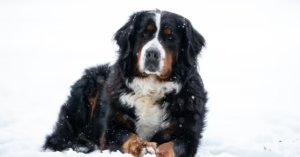
A healthy and balanced diet is crucial for the well-being and overall health of your Mini Bernese Mountain Dog. Providing the right nutrition helps maintain their energy levels and supports their growth and development.
Start by offering food that suits their size, age, and activity level. The primary ingredient should be meat protein, and healthy fats like fish oil are essential to support coat and skin health.
Additionally, make sure to clean their water bowl daily and always provide fresh, clean water for your dog to stay hydrated. It’s also a good idea to consult with your veterinarian about your dog’s diet, exercise routine, and any health concerns to ensure they receive the best nutrition possible.
Pricing and How to Choose a Breeder for Your Mini Bernese Mountain Dog
Mini Bernese Mountain Dogs are a relatively rare breed, and this rarity can make them quite expensive. Prices typically range from $1,500 to $5,000 or more, depending on the breeder and the dog’s lineage. Thoroughly researching breeders is essential to ensure they conduct health testing on their dogs and provide proper care, socialization, and early training for their puppies.
To find a reputable breeder, you can search online for Mini Bernese Mountain Dog breeders in your area, or attend local dog shows and events to meet breeders in person. Additionally, local veterinary clinics or breed-specific rescues and organizations can offer recommendations.
When you contact a breeder, be sure to ask detailed questions about the puppy’s health history, request health certificates, and ensure you’re getting a well-bred, healthy puppy. This ensures that your new companion has the best start in life.
Rescuing and Adopting a Mini Bernese Mountain Dog
If you’re considering adding a Mini Bernese Mountain Dog to your family, adoption is a wonderful option. Many breed-specific rescues and organizations specialize in Mini Bernese Mountain Dogs and can help connect you with a dog that needs a loving home. Adopting a dog not only offers a rewarding experience but also gives a deserving dog a second chance at a happy life.
Male vs. Female Mini Bernese Mountain Dog: What’s the Difference?
Female Mini Bernese Mountain Dogs tend to be smaller than their male counterparts and generally mature faster. This means they often learn commands and train more quickly than males. On the other hand, male Mini Berners are typically less moody than females. They tend to be more reliable, laid-back, and less stubborn, offering a calmer temperament compared to the females.
3 Surprising Facts About the Mini Bernese Mountain Dog
1. Not AKC-Recognized
While the American Kennel Club (AKC) recognizes the Mini Bernese Mountain Dog’s parent breeds, this designer breed is not officially recognized. This is typical of many mixed or designer breeds that haven’t been given AKC recognition.
2. Prepare for Shedding Season
Mini Bernese Mountain Dogs have a double coat, which means they go through a shedding process called “blowing coat.” During the spring and fall, they shed large tufts of fur for two to three weeks. Be ready for extra vacuuming during these seasons!
3. Tri-Color Only
Unlike the King Cavalier Spaniel, which can be found in solid, bi-coloured, or tri-coloured patterns, the Mini Bernese Mountain Dog only comes in a tri-coloured pattern. Expect their signature black, white, and rust-coloured coats to remain consistent across all Mini Berners.
Conclusion
In conclusion, the Mini Bernese Mountain Dog is a wonderful companion for both families and individuals. These dogs are loyal, affectionate, and intelligent, thriving on spending quality time with their owners and being involved in family activities. However, before bringing a Mini Bernese Mountain Dog into your home, it’s essential to consider their specific health, grooming, and exercise needs.
By providing the right care, attention, and training, you can help ensure your Mini Bernese Mountain Dog leads a happy, healthy life. If you’re looking to add one to your family, adoption is a fantastic way to give a dog in need a second chance at a loving home.
Frequently Asked Questions (FAQs)
Q: What is a mini Bernese mountain dog?
A Mini Bernese Mountain Dog is a smaller version of the standard Bernese Mountain Dog. It’s a designer breed, typically created by crossing a Bernese Mountain Dog with a smaller breed like the Cavalier King Charles Spaniel or a Miniature Poodle.
Q: How big do mini Bernese mountain dogs get?
Mini Bernese Mountain Dogs typically weigh between 25 to 50 pounds and stand 12 to 20 inches tall at the shoulder, making them a compact, sturdy breed.
Q: What health problems are mini Bernese mountain dogs prone to?
Mini Bernese Mountain Dogs are prone to health concerns such as hip and elbow dysplasia, eye issues like cataracts, and certain cancers such as lymphoma. Regular vet check-ups are key to early detection.
Q: Are mini Bernese mountain dogs good family pets?
Yes! Mini Bernese Mountain Dogs are known for their loyalty, affectionate nature, and friendly demeanour. They are great with children and other pets, making them excellent family companions.
Q: How much exercise do mini Bernese mountain dogs need?
These dogs are quite active and need regular exercise to stay happy and healthy. A daily walk or run, along with playtime and mental stimulation like puzzle toys, are important for keeping them fit. Access to a yard is a plus for these energetic dogs.

